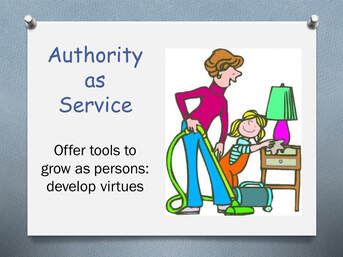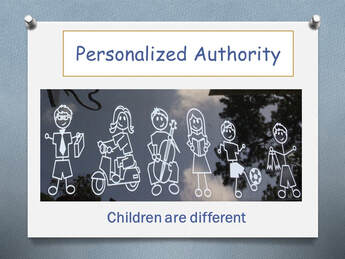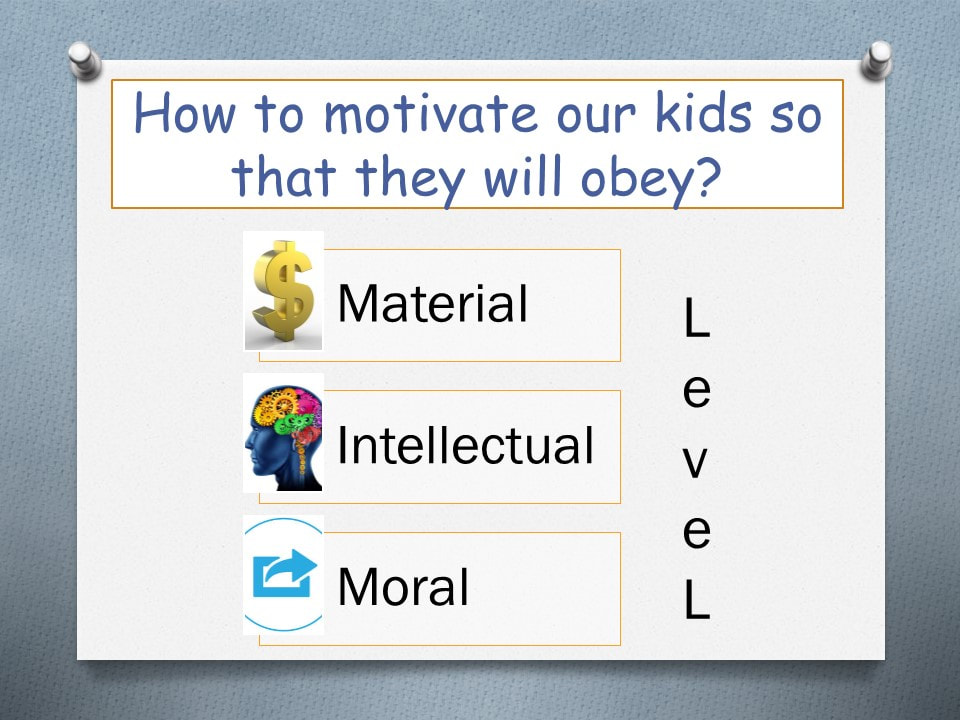 From what we have been saying, we see that authority has an eminently positive meaning and should be viewed as a service. Authority understood in this way: Is a reference point, a model a light that guides whoever follows it towards the goal he or she is seeking. a rod that supports the growth in virtue We exercise Authority as a service to our children. We struggle to become better persons ourselves, we protect and defend certain virtues and we help them grow in virtue and become an authority themselves. Exercising authority comes down to offering children, right from when they are very young, the tools they will need to grow as persons. and these tools are the virtues.  An important point I want to stress is that we shouldn't exercise authority by treating all children equally, because each one of them is different: Due to genetics, their temperament, their character, their age, their sex, their talents, interests, etc.. To exercise authority in the same way with all the children is unjust. Children will respond differently to the same prize or punishment. We shouldn't establish the same rules for everybody. Different ages makes it necessary to establish different rules. As children are different, the motivation will be different for each child, for one child it could be effective to tell him: "How happy your mom will be if you did this" and for another: "you will have more time to play if you do this right now". As children are different, the virtues that we will have to foster in them will be different. A child might be naturally orderly and be quick to anger while another one will be forgetful and with a good heart and temper. So in each one you have to correct the defect by fostering the opposite virtue. As children grow they will choose their own path, but they will only be able to choose from the capacities that they have developed. Rules and orders are not end in themselves, but means for raising our children. Exceptions to rules can be made but always accompanied by an explanation.  Now, I will share with you some practical points. We always have to convey to our children that to obey is good in itself, that we love them and that what we demand is good for them. When our kids disobey we have to use motivations. We can motivate our children in different ways and some motivations are more useful and better than others. We can motivate in a MATERIAL level. We use rewards and punishments so that we make them do what we want: We give you $$$ if you clean your room, we take your phone if you don’t do your homework. You can watch TV or play Fortnite if you walk the dog. Material motivations don’t help to educate because they act for material reasons instead of looking for the good in itself. Instead of promoting good habits you encourage consumerism and materialism. We can also motivate in an INTELLECTUAL level. We motivate our children by reasoning with them to do something. These types of motivations aim at doing something for their own good. Intellectual motivations are good but if we only use these, we run the risk of having our kids only to look for their own good. Motivations in the MORAL level: we give reasons to the intelligence to get the will to look for the good freely. They are also called transcendent, because they go beyond ourselves. You look for the good and you give it to others, you share it. Love, affection, giving our time. This is the best way to motivate our children. For example: "Let's go visit your grandma at the nursing home because it makes her happy." To foster virtues, the motivations have to come from the 3rd level, education of the will and values. To speak about virtue, acts have to be free and good, looking for the good in itself. This motive never ends. It always produces joy. The joy of having achieved a good, that joy is a prize in itself. Where if you study because they give you money, when you no longer receive money, you no longer study.
0 Comments
Leave a Reply. |
AuthorPilar Caranti holds a Masters in Psychology from the Catholic University of Argentina. She is a Certified Professional Life Coach. Family topics and the education of children are her passion. She has given many lectures on parenting topics like: forming the will of our children, authority, education of leisure, pornography, etc. Archives
June 2019
|



